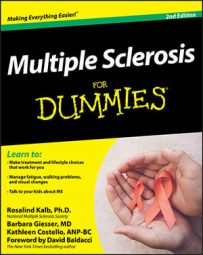Having good health insurance coverage is important for the average person, but for someone who has multiple sclerosis (MS) or another long-term disease, it’s even more important because things can get costly. So, for the purposes of financial planning, the important thing is to figure out the costs associated with the coverage you have.
Getting a handle on insurance coverage now — before you run into any kind of crisis, is a critical piece of your financial safety net. For example:
Review your health insurance plan to see exactly what it does and doesn’t cover, keeping in mind that non-covered expenses end up coming out of your pocket.
Calculate what you’re paying now for premiums, co-pays, co-insurance, deductibles, prescription coverage, and any other associated expenses. When you figure this number into your health-related expenses, keep in mind that costs can vary significantly from year to year.
If your employer (or your partner’s employer) offers more than one health plan, compare them thoroughly, keeping in mind that the plan with the lowest premium is likely to give you higher out-of-pocket expenses down the road. If you chose a plan before your MS diagnosis, check to see if it’s still the most appropriate one for you in terms of what it covers, the doctors you see, and the medications you take.
If your insurance coverage comes through your employer (or your partner’s employer), check to see if it’s a fully insured or self-insured plan — the difference can have some financial implications.
With a self-insured plan, the employer acts as the insurance company and doesn’t have to follow any state regulations — which means that you have to go to court to fight any unfavorable decisions. A fully insured program, which the employer purchases from an insurance company, provides greater consumer protection because it’s regulated by the state.
With this kind of plan, you can request an independent review by the state if you have an unsuccessful appeal concerning your coverage. About 60 percent of people with employer-based coverage have self-insured plans.
Check out whether you have any disability insurance through your employer. It turns out that most people think they have it but they actually don’t. Remember that after you’ve been diagnosed with MS, chances are you won’t be able to purchase a new policy.
If you’re fortunate enough to have disability coverage, read the fine print to find out how it defines disability, how much it pays and for how long, and how long you have to wait for it to kick in after you’ve filed for it. And check to see if you’re allowed to do any kind of work when you’re receiving benefits.

